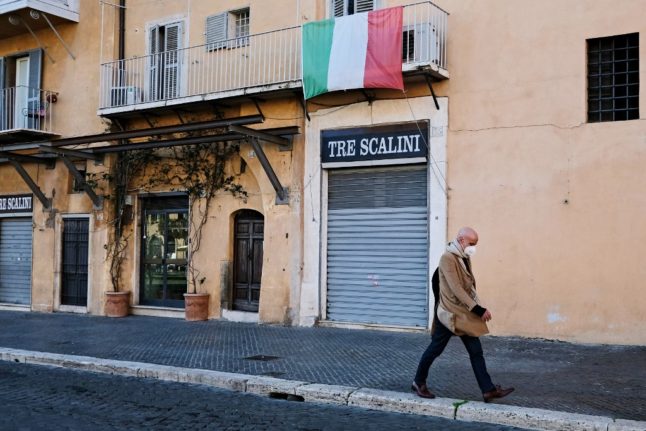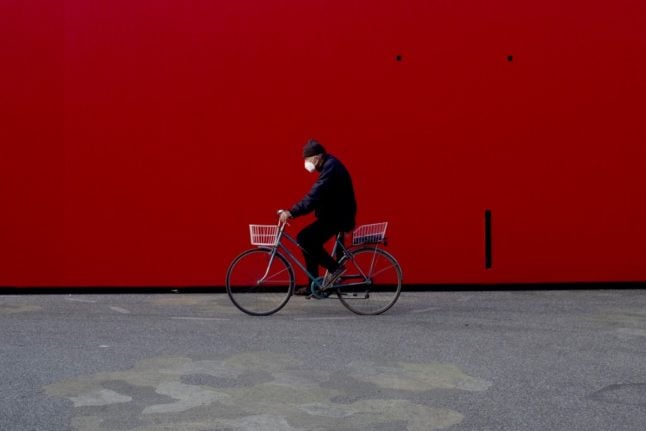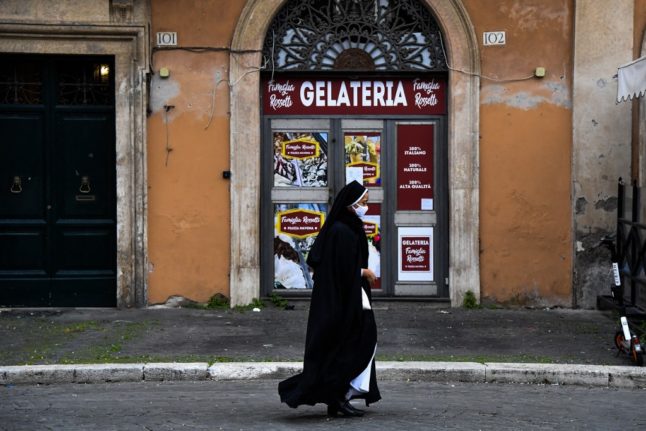If you thought Italy’s changing regional tiered system of red, orange, yellow and white zones was confusing, things have become more complex still over the past few weeks.
Many local authorities have also declared additional coronavirus restrictions covering a single town, a whole province, or a whole region, on top of those decided by the national government.
There are now dozens of so-called ‘mini red zones’ or localised lockdowns in towns or provinces that have seen a spike in cases, often linked to more infectious variants of the coronavirus first detected in the UK, Brazil and South Africa.
READ ALSO: Lockdowns and vaccine scepticism – how France and Italy are struggling to get Covid under control
Some red zones have been recently expanded to cover larger areas as local authorities struggle to get infection rates under control.
This is the case in Lombardy, which has declared itself a ‘reinforced orange zone’ from Friday (more details below).
And the entire province of Bologna was declared a red zone on Thursday.
You can see a list of the towns and other areas currently enforcing further local restrictions here.
The number of local restrictions has grown in recent weeks, and it seems that they will continue to be declared throughout March after Italy’s latest emergency decree, announced on Tuesday, provided for both the system of regional tiered restrictions and localised lockdowns to stay in place.
READ ALSO: Regional restrictions to continue as Italian PM signs new emergency decree

The latest emergency decree also altered several rules within the tiered system.
So what exactly is the difference between orange, ‘dark orange’ and red zones now?
They can appear confusingly similar. In all three, bars and restaurants are closed and residents’ movements are heavily restricted.
The main difference is the type of shops and other businesses which can stay open.
And in red zones all schools are required to close – though authorities have the option to close schools in other badly-affected areas, too.
A 10pm-5am curfew and a ban on travel between regions applies nationwide.
Here’s a look at the rules in orange, ‘dark orange’ and red zones:
Orange zones:
According to the Italian health ministry, people in orange zones are not allowed to travel from one municipality (town) to another, unless for essential reasons, by either public or private transport.
Bars, cafes, restaurants, pastry shops and other food businesses are closed.
Home delivery is still allowed, and takeaway is permitted until curfew at 10pm.
Museums and art galleries are closed.
All shops can remain open.
Hairdressers can remain open.
Visits to the homes of family and friends outside your municipality are not allowed.
You can leave your municipality to visit your second home.
‘Dark orange’ zones:
Additional restrictions in local ‘dark orange’ or ‘reinforced orange’ zones may include:
- School closures
- Playground or park closures
- A ban on travel to second homes
- A ban on visits to family and friends.
- Earlier curfew hours
However, as ‘dark orange’ is not an official classification under the national tiered system of restrictions, these rules may vary from one place to another. Check your region or local comune’s website for the latest updates – here’s how to do that.

Red zones:
In red zones, all the orange zone rules apply, plus:
In addition to not being allowed to travel from one municipality to another, people in red zones are not allowed to move around within their own area unless for essential reasons, by either public or private transport.
You can only enter or leave an orange or red zone for the same urgent reasons.
All schools in red zones are closed.
Shops are to closed except for those deemed essential, which include supermarkets and other food shops, tabacchi, and pharmacies.
Hairdressers and beauticians are closed.
Visits to relatives and friends are not allowed, even within your own municipality,
Travel to second homes is also prohibited in red zones.
All team sports activities are suspended (solo exercise such as running or walking is allowed.)
Note: This guide is based on the national rules. Local restrictions can vary, and are subject to change.
Residents are advised to check for changes to their town and region’s local rules as well as following updates from the national government. Here’s where to find the latest updates from your local authority.



 Please whitelist us to continue reading.
Please whitelist us to continue reading.
Member comments